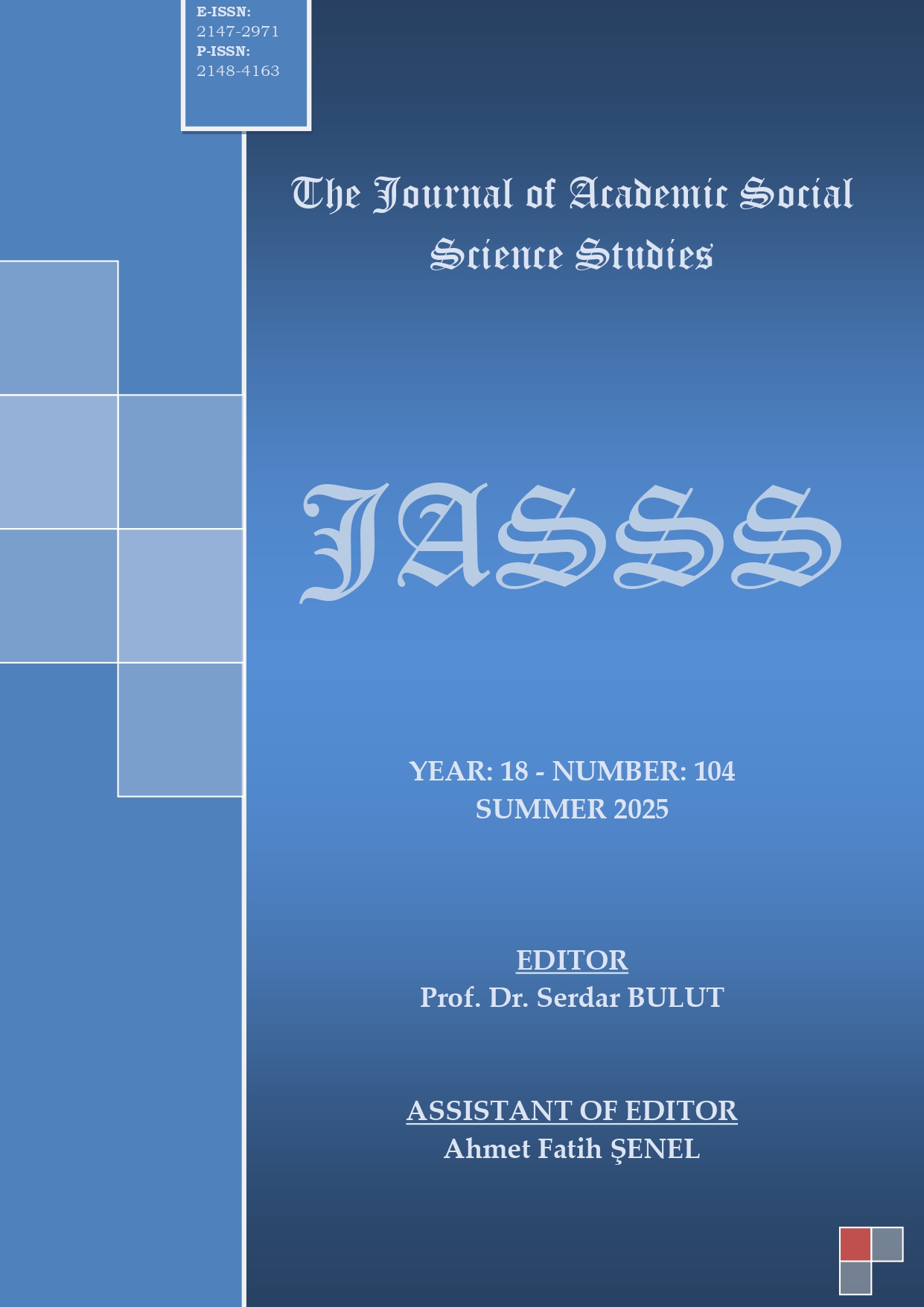Author :
Abstract
Ahlâk, bir toplumun olmazsa olmaz normlarıdır ve ahlâklı toplum, huzurlu ve mutlu bir toplumdur. Birçok toplumda ahlâkın tesisi için belirli ilkeler ortaya konulduğu gibi Hz. Peygamber inşa ettiği İslâm toplumunda ve medeniyetinde ahlâkî ilkelere büyük önem vermiştir. İslâm toplumunun dayandığı ahlâkî ilkelerin kaynağı hiç şüphesiz Mekke ve Medine dönemlerinde nazil olan surelerdeki ayetlerdir. Bu çalışmada "Medenî sûrelerde ahlâkî ilkeler" konusu ele alınmıştır. Bu bağlamda, Mekkî-Medenî tasnifi, Medenî sûrelerin hangileri olduğu ve bu sûrelerin muhtevaları üzerinde durulmuştur. Ardından, ahlâk konusu incelenmiş ve bu çerçevede cahiliye dönemi ile İslam sonrası Medine'deki ahlâkî anlayışa değinilmiştir. Ayrıca, Medenî sûrelerde yer alan ahlâkî esaslar araştırılmıştır. Kur’ân’ın getirdiği ahlâkî ilkeler evrensel değerler taşımaktadır. Bu tür ahlâkî davranışlara sahip toplumlar, huzurlu ve mutlu toplumlardır. Çünkü Medenî sûrelerdeki ahlâkî ilkeleri Medine toplumu uygulamış ve bunun meyvesi olarak "asr-ı saâdet" dönemi ortaya çıkmıştır. İnsanlar arası yardımlaşma, dayanışma, infak, cömertlik, şefkat ve merhamet gibi duyguların egemen olduğu bir toplumun inşası, ancak Kur’ân’ın evrensel ahlâk ilkelerine sıkı sıkıya bağlı kalınarak mümkün olmuştur. Ayrıca, bu ahlâkî ilkelerin nasıl uygulandığını gösteren ve ömrü boyunca bu ilkeleri sergileyen Hz. Peygamber’in ahlâkî yaşantısı da büyük önem taşımaktadır. İncelenen sûre ve ayetler, bizlere gösteriyor ki, bu dünyada iyilik yapan mutlaka karşılığını alır, kötülük yapan ise karşılığını bulur. Bu çalışmada, içerik analizi ve mukayeseli analiz yöntemleri kullanılarak Kur’ân-ı Kerim’deki Medenî sûrelerde hangi ahlâkî ilkelere yer verildiği tespit edilip değerlendirilmiştir.
Keywords
Abstract
Morality is the indispensable norms of a society, and a moral society is a peaceful and happy society. Just as many societies have laid down certain principles for the establishment of morality, the Prophet Muhammad gave great importance to moral principles in the Islamic society and civilization he built. The source of the moral principles on which Islamic society is based is undoubtedly the verses in the suras that were revealed during the Macca and Medina periods. In this study, the subject of "moral principles in civil surahs" is discussed. In this context, the Meccan-Medinan classification, which surahs are Meccan and the contents of these surahs are emphasized. Then, the subject of morality was examined and in this context, the moral understanding in the Jahiliyyah period and post-Islamic Medina was touched upon. In addition, the moral principles in the Civil Surahs were investigated. The moral principles brought by the Quran have universal values. Societies with such moral behavior are peaceful and happy societies. Because the moral principles in the Civil Surahs were implemented by the Medina society, and as a result of this, the "era of happiness" period emerged. The construction of a society dominated by feelings such as mutual assistance, solidarity, infaq, generosity, compassion and mercy among people has only been possible by strictly adhering to the universal moral principles of the Quran. In addition, Hz. Muhammad, who showed how these moral principles were applied and exhibited these principles throughout his life. The Prophet's moral life is also of great importance. The surahs and verses examined show us that those who do good in this world will definitely receive their reward, and those who do evil will find their reward. In this study, using content analysis and comparative analysis methods, it was determined and evaluated which moral principles were included in the Civil Surahs in the Holy Quran.





